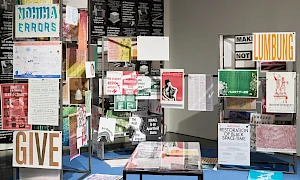
Dieter Kölsch printing at documenta Halle, Kassel, 2022. Photo: Fred Hansen.
Lumbung
In Indonesia, a lumbung is a communal barn where surplus harvest is stored for the common good. This concept and practice lies at the heart of the Ruangrupa group’s project for documenta 15 and underpins the organisation and economics of collective growth for a horizontal distribution of resources.
Strategy
In late spring 2021, Ruangrupa invited me to form part of the publishing project for documenta 15. Instead of a central book (catalogus lex), they were more interested in creating a series of more dynamic publications featuring a range of different voices, intentions and aims.
They envisaged a system in two parts with very different times, tones and teams. The first part would focus on presenting the cosmology of the lumbung practice—documenta’s leitmotif—together with maps and navigational guides produced by the Basque publishing house consonni. The second part, which I was invited to coordinate, would focus on publications on process, since most of the invited projects were based on collective events and situations to be carried out during the hundred days following the opening of the exhibition.
To design the best strategy, we began an intense dialogue with Indra Ameng (Ruangrupa) and Frederikke Hansen (curatorial team) to decide the initiative’s defining characteristics. We immediately set out a series of key needs and ideas: “Not big but many”, “Print when necessary” and “We should look beyond the documenta period”.
As we gradually got to know each of the invited projects in detail, it became clear that most of them branched out in several directions, i.e., they were complex, nonlinear projects based on practices stretching out over extended periods of time. Getting to grips with their internal mechanics 100% required time for experience. Selecting the most precise and succinct information to describe them meant leaving out information, which risked distorting how they would be read and interpreted.
In addition, we also knew that although many projects aimed to produce posters and a range of different publications, they faced serious production and administrative problems—local printing presses becoming overwhelmed with a sudden rush of demand at the same time, project schedules that left very little margin to create digital files, tight deadlines for translations, transport costs for materials printed any distance away, etc.

Lumbung Press Band at documenta Halle, documenta15, Kassel, 2022. Photo: Nicolas Wefers.
Publishing
Given this situation, I suggested upending the role of publisher and, by extension, the very idea of what we understood by publishing. The projects should speak for themselves, in their own terms, with no room for an omniscient voice seeking to classify or define them. Instead of selecting, controlling, cutting or excluding, we should simply multiply and distribute. The narrative should stem from the projects’ own logic, from the hands of the creators themselves (and remain there). The description of a project might be a drawing, image or music score, and could also be part of the project itself. We should provide the means to create a platform to communicate directly with collectives and the public. The idea in mind is a form of publishing defined not by selections and judgements, but by its multiple, expansive and immediate nature. EVERYTHING should be published unedited, in any language, in any form, trusting the creators unreservedly.
And how can we achieve this? With a printing press. By controlling the means of production, we can define times, structures, methods and content. At the same time, we can also strategically absorb the whole production side, leaving artists free to react in the here and now without having to justify their work administratively.
Project
–We are neither a printing house nor a publishing house. We lie somewhere in between these two activities. We are a research space.
–We study and experiment with conceiving, arranging, diagramming, reproducing, multiplying, printing, distributing, circulating and valuing ideas for a publication. We believe that the publishing process is not only about making copies but also about nurturing the driving idea that gives it its value.
–We focus on working outside the client-product or client-printer logic by means of a network of collectives, research workers, partners, artists who mutually support each other. We don’t merely offer printing services.
–We work with projects, not individuals.
Imprint
–It isn’t so much about what you print—be it a poster, book, handbill, newspaper, pamphlet, leaflet, booklet, postcard, map or magazine—as the collective shaping of body and form, i.e., making a social imprint.
–We believe that this is the means of creating a collective body. Our fundamental work is about and with collectives. We see printing as a commitment, in that publications work as messages or commitments in space and time—a body that reactivates every time there is a return to the space, material and dimensions of printing.
–We don’t have any editors, translators or designers. We believe in using raw printing and publishing to transmit ENERGY to our complicit readers directly, without any intermediaries.

Lumbung Press Band at documenta Halle, documenta15, Kassel, 2022. Photo: Nicolas Wefers.
Workshop
We are equipped with:
–A 52 × 72 cm two-colour Komori offset printing press (1998); our natural medium is duotone.
–A Planax Perfect-Binder FII for cold glue binding.
–A Honer Accord long-arm reel stapling machine.
Our purely mechanical tools give us full control of the process at every step and let us play around with the various parameters. We are not bound by the standards of digital devices or the formats of commercial printing.
In late 2022, we moved from our first residency at documenta Halle, in Kassel, to Barcelona, where we teamed up with local initiatives and secured a one-year residency at Hangar.org centre for art research and production. From here we will be producing on a day-to-day basis and organising artist residencies, an ongoing educational programme and specific projects, as well as opening our doors to the general public.
Room for error
A customer turns up at a commercial print shop with a neat and tidy PDF file, an outline of the project and a good idea of the finished result. The printer’s job is simply to satisfy this need by doing everything possible to match the customer’s expectations as close to 100 % as possible.
We don’t aim to replicate this setup and we reject the idea of a finished product to be checked.
An OK to Print is an illusion. It doesn’t exist. It is merely an ideological sleight of hand.
That’s why we can talk about room for error, because we are never going to reach that ideal percentage. Not even a reference copy can keep its promise: as an intangible idea, it always contains an impossible space or aspect.
We should subvert/revert this logic and define the construction of something to be a flexible, organic process. The process of copying is something to be listened to, there has to be the possibility of taking modifications on board along the way. There is no such thing as error, because printing is part of a thought-in-progress.
Variables
All our copies are of distribution quality, they all have a different aspect to the original plate and we take full responsibility for each and every one of them. Our approach to offset printing means understanding copies as a series of images of a body in movement, undergoing transformation. Together they make up a register of a collective body. They are different versions of an idea.
This frees us up to do things that canonical printing would take as an affront: using overs as valid prints, combining inks directly in the machine, printing with varnish or without pigments, manipulating plates, making adjustments during the print run, printing the same job on several different kinds of paper, producing editions with mismatched copies, experimenting with the technical limits of the machinery, etc.
–We trust the eye 100 %.
–We don’t believe in the Pantone scale or in mocking up dummies to be rigidly adhered to.
–We don’t correct plates. We don’t reprint to get a perfect result at any cost. We don’t believe in homogeneous editions.
–Overs and overprints are systematically given away. At our first incarnation at Kassel we gave out nearly 55,000 posters over a hundred days.
Effective approach
How can we use what we have as effectively and coherently as possible? How can we boost the logic behind each project using our range of means? We offer only the materials available at the workshop at any given moment and strive to maximise their use.
–We are interested in projects that wouldn’t exist without a collective printing press or that would struggle to come to fruition at a commercial printing press because of time constraints or complicated processes. We are keen to play our part in meeting the real social need to print materials at short notice at a local level. We are particularly interested in playing a role in crosscutting projects that bring together people and fields that don’t commonly overlap (social groups, art forms, artistic disciplines, concepts, etc.).
–We prioritise projects we have been involved with from the very start and which are open to dialogue rather than simply requiring to be printed out. (We aren’t great fans of closed projects.)
–All our partners (artists, writers, printers) will help carry out and produce other projects. Once someone has joined lumbung, they become part of the support chain.
We have mapped out several lines of work:
1. We will continue working with lumbung members and d15 artists.
2. We will hold artist residencies in Barcelona for specific neighbourhood projects, with specific institutional support for each project.
3. We will teach people how to use our machines to train printers who might then join our working group. These seminars will be given by printer Dieter Koelsch (lumbung and founding artist).
4. In the same way that a lumbung was set up for artists at d15, we will set up research groups in Barcelona to explores ideas in printing and publishing, including Music and Printing Presses, Landscape and Imprints, Cooking and Printing, Individual Units and Reproducing Patterns, among others.

Lumbung Press at Hangar Barcelona, 2023. Photo: Tim Rudolph.

Lumbung Press at Hangar Barcelona, 2023. Photo: Tim Rudolph.
Platform
Each of the artists and collectives invited to documenta 15 agreed to put 20% of the budget for each project into a shared pot to produce projects for the common good, such as lumbung kios, lumbung gallery, lumbung land, lumbung radio, lumbung publishers, lumbung space and lumbung press.
As one of these collectively funded projects, lumbung press was open to all d15 participants, who were free to make whatever use of it they saw fit, guided by the general principle that everyone should have equal time and access to the workshop and materials (paper and printing plates).
As an independent initiative, we face the crucial challenge of how to integrate new projects and members while also ensuring our own survival by keeping up a regular output. How do we achieve a fair exchange of work and production?
–One of our functions is to sign agreements with different organisations and companies supplying materials to keep the costs borne by creators to a minimum. For example, thanks to our flexible approach, we ask the printing presses in Kassel for any unused, surplus paper from print runs to build up the amount we need for the next print run.
–We believe in constant circulation. If organs don’t keep active, they die. We aim to set up a distribution circuit for material at local and international level through our colleagues at lumbung publishers on the one hand and through the distribution channels for documenta publications on the other.
–Lumbung press keeps a hundred copies of each project to build up its archive, comprised of boxes as time capsules offering a record of our work in chapters at different stages over time.
Twist
–Syncopated rhythms come naturally to us. At work, we have one foot firmly on the ground and the other, ever hesitant, at an angle, twisting us around (as in cumbia music). Without this twist, there’d be no swinging hips, and that’s no way to dance.
–We are staunch off-beat believers who see machines as musical instruments. Our printers and workers are also musicians. We relish every opportunity to put on concerts (lumbung chakalaka 13/08/2022) and exhibitions where we can hand out printed material to dance on.
Tool
One of our goals is to become an outlet or tool for creators of contexts eager to visualise, formulate and disseminate social, cultural or political ideas and projects. Several lumbung artists face issues of censorship, press freedom and ideological control at their workplace. We want to set up a line of lumbung press publications to make persecuted or censored material available. We aim to put mechanisms in place to protect certain authors and to print materials that could all too easily be controlled, altered or erased in other printing channels.
Effective operations
How can we support artists and collectives by cutting printing costs to the bare minimum, or even free of charge? How can we set up a sustainable support system with long-term viability? How can we allocate the resources we manage to obtain and share out the day-to-day workload between our partners effectively and coherently? How do we resolve the dilemma of wanting to spread urgent messages while facing external challenges such as the energy crisis or the rising price and increasing scarcity of paper? How can we gain access to distribution networks focused more on precision than on the market-revered goal of quantity? How can we reach places where publications will be relevant and truly useful?
Synergy
A (live) public-access printing press is a powerhouse that attracts and distributes contacts. It can set up a whole series of unexpected currents and eddies.
Several members of our team of printers and partners joined us after seeing us at work at the exhibition. Bookbinder Martin Rencly got on board after a random visit gave him an insight into our dynamic artistic context, where speed or quantity are not of the essence, opening his eyes to new ways of working with paper, print products and, above all, the people targeted by our messages.
Our decentralised process makes it possible to open up channels for production systems that are out of bounds to most of the reading public, together with the key concepts emanating from them. Why is it so difficult to access offset printing? Why do industrial production systems have a patina of truth? Why do we place our trust in printing houses? Is there another way to go about printing by following a different set of rules and truths?

Dieter Kölsch printing at documenta Halle, Kassel, 2022. Photo: Fred Hansen.
The Kassel lumbung press team are Indra Ameng, Frederikke Hansen, Dieter Kölsch, Martin Rencly, Jaroslava Tomanova, Leonhard Flemisch, Severin Frank and Erick Beltrán.

Opening of Lumbung Press, Hangar, Barcelona, 2023. Photo: Luciana Della Villa.

no hiha errors (no hay errores/there are no errors), 2023. Photo: Fred Hansen.

Opening of Lumbung Press, Hangar, Barcelona, 2023. Photo: Luciana Della Villa.

no existen copias (copies don’t exist), 2023. Photo: Erick Beltrán.

Opening of Lumbung Press, Hangar, Barcelona, 2023. Photo: Luciana Della Villa.
The views and opinions published here mirror the principles of academic freedom and do not necessarily reflect the views or positions of the L'Internationale confederation and its members.
Related activities
The Open Kitchen. The fermented seed, colonialism and extractivism
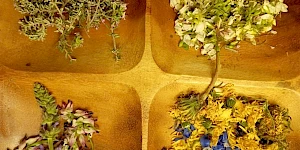
The MACBA Kitchen is a working group situated against the backdrop of ecosocial crisis. Participants in the group aim to highlight the importance of intuitively imagining an ecofeminist kitchen, and take a particular interest in the wisdom of individuals, projects and experiences that work with dislocated knowledge in relation to food sovereignty.
The Kitchen: Workshop by Marina Monsonís
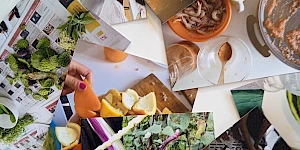
The Kitchen is a meeting place open to the participation of all, especially people and organizations that want to share their knowledge and experiences around the kitchen.
Multicultural Youth Center
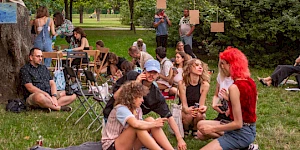
The Museum of Modern Art in Warsaw, together with the confederation of museums L'Internationale, is establishing a Multicultural Youth Center. This is a unique space for 16-24 year olds to explore and develop their creativity, make new friends and hang out in a friendly and supportive environment.
Where are the Oases?
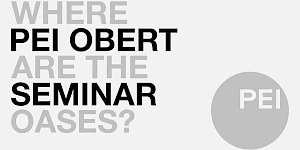
PEI OBERT seminar
with Kader Attia, Elvira Dyangani Ose, Max Jorge Hinderer Cruz, Emily Jacir, Achille Mbembe, Sarah Nuttall and Françoise Vergès
An oasis is the potential for life in an adverse environment.
Mobile Garden. A Place to Meet
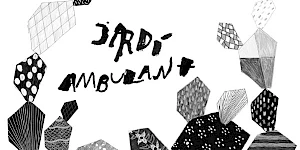
An open space, a social space. How could the Museum be more open to the needs of the neighbourhood?
Anti-imperialism in the 20th century and anti-imperialism today: similarities and differences
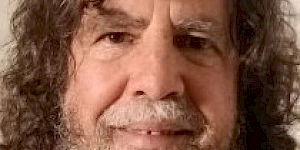
PEI OBERT seminar
Lecture by Ramón Grosfoguel
In 1956, countries that were fighting colonialism by freeing themselves from both capitalism and communism dreamed of a third path, one that did not align with or bend to the politics dictated by Washington or Moscow. They held their first conference in Bandung, Indonesia.
School of Commoning Practices
This exchange programme gathers different schools organized by volunteers and migrant communities in Athens (Open School for Migrants) and Madrid (School of Rights, Escuela de Español and Situated mediation School) in order to share their knowledge, exchange strategies and reflect on the experience of working together with migrant communities.
Team of Teams
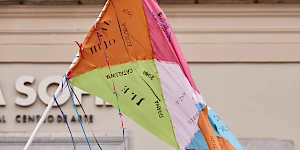
This project researches citizen participation as a fundamental pillar in the creation of community.
Sustainable Art Production
The Studies Center of Museo Reina Sofía will publish an open call for 4 residencies of artistic practice for projects that address the emergencies and challenges derived from the climate crisis such as food sovereignty, architecture and sustainability, communal practices, diasporas and exiles or ecological and political sustainability, among others.
SUPERHOST | Club Antena. Intimate listening and dancing experience
with Nele Möller, Farida Amadou, Le Réalism, Céline Gillain, Roberta Miss, Elena Colombi
CLUB ANTENA is an intimate listening and dancing session with a lecture, concert, performance, catering and DJ sets, exploring what it means to listen with our bodies.
Red, Green, Black and White
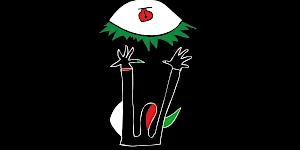
A performative inquiry by Institute of Radical Imagination and MSU Zagreb
Tongue and Throat Memories
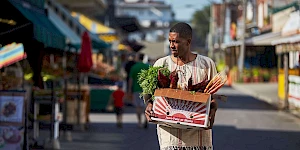
On hospitality and conviviality through food
Knowledges and convenings
Cooking Sessions
Song for Many Movements: Scenes of Collective Creation
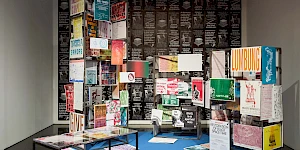
An ephemeral experiment in which the ground floor of MACBA becomes a stage for encounters, conversations and shared listening.
Related contributions
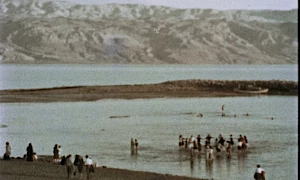
The Kitchen, an Introduction to Subversive Film with Nick Aikens, Reem Shilleh and Mohanad Yaqubi
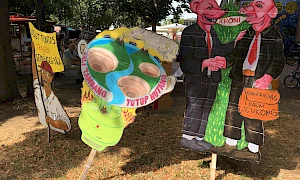
Lumbung practices to resist and collaborate through art
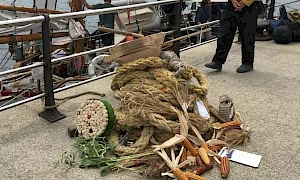
Some Guiding Terms for Lumbung Press: Defining “publishing”
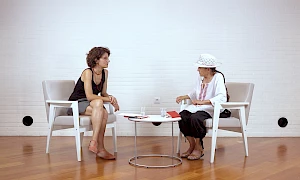
In the Battles of Language / En las batallas del lenguaje
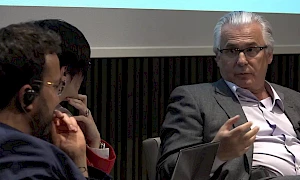
Evidence, Activism And The Law in the Age of Post-Truth
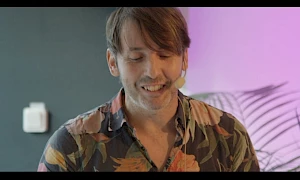
THE MUSEUM YET TO COME. Exercises of institutional imagination
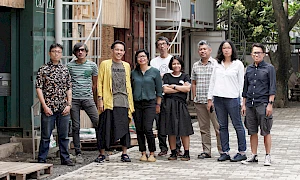
Statement in support of documenta fifteen
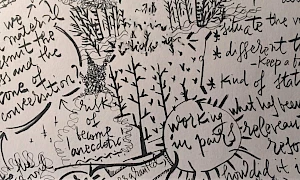
L’Internationale Public Statement on the recent events at MACBA
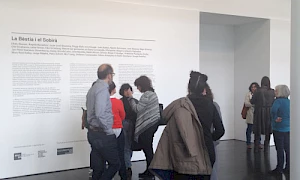
L'Internationale statement in support of the decision to open "La Bestia y el soberano" (The Beast and the Sovereign)
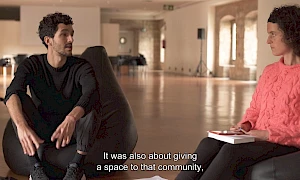
On Riots, Grief and Parties
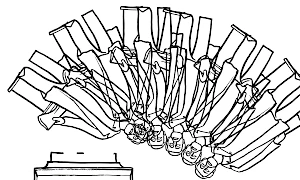
Diaspora. Art Stories from Barcelona
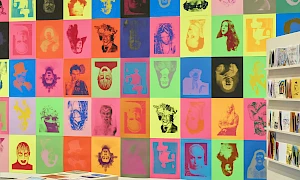
Song for Many Movements. Opening Performance Live on Radio Alhara
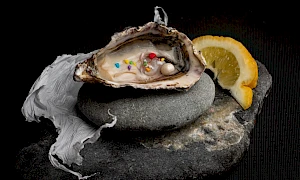
Discomfort at Dinner: The role of food work in challenging empire
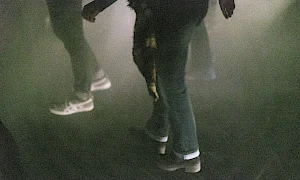
Mix tape: Let's Funk Up All Genders!
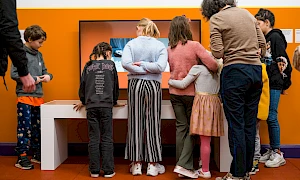
Towards Collective Learning, or, Decompartmentalizing Education
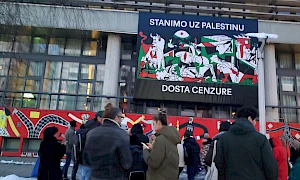
The Silence Has Been Unfolding For Too Long
